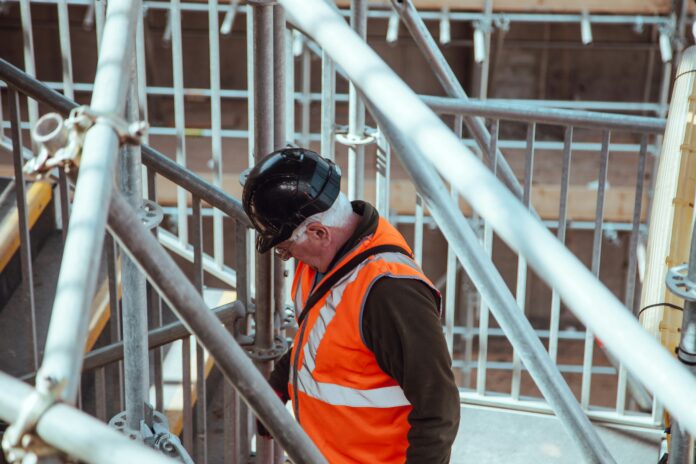In the construction industry, the push towards sustainability is not just a trend; it’s a necessity. As the world faces the growing challenges of climate change, resource depletion, and environmental degradation, the construction sector is being called upon to adopt greener practices. Air compressors, often seen as a fundamental piece of equipment on any construction site, are playing a pivotal role in driving this sustainable transformation.
This article explores how air compressors contribute to sustainable construction and why selecting the right compressor from a local air compressor company can make all the difference.
The Role of Air Compressors in Construction
Air compressors are versatile machines that convert power into potential energy stored in pressurized air. This energy can be used to power various tools and equipment essential for construction, such as nail guns, drills, sanders, and more. Their application is widespread, from small residential projects to large-scale industrial construction.
Energy Efficiency: A Path to Sustainability
One of the critical aspects of sustainable construction is energy efficiency. Air compressors, particularly modern models, are designed to consume less energy while delivering high performance. This efficiency reduces the overall energy consumption on construction sites, leading to a decrease in the carbon footprint of the construction process.
For instance, variable speed drive (VSD) compressors adjust their output to match the demand, rather than running continuously at full speed. This technology alone can lead to energy savings of up to 35%, making them an ideal choice for eco-conscious construction firms.
Reducing Waste with Compressed Air Systems
In construction, material waste is a significant concern, both environmentally and economically. Compressed air systems can help mitigate this issue in several ways.
First, they enable more precise control over tools, reducing errors and the need for rework. For example, when using pneumatic tools powered by air compressors, workers can achieve a higher level of precision compared to manual tools, minimizing material wastage.
Second, compressed air is used in various applications to clean surfaces and remove debris, allowing for more effective recycling and reuse of materials. This practice not only reduces the amount of waste sent to landfills but also conserves resources by promoting the use of recycled materials in construction.
Emission Reduction through Cleaner Technologies
Air compressors are increasingly being developed with advanced technologies that minimize harmful emissions. Diesel-powered compressors, once the standard, are now being complemented or replaced by electric and hybrid models. These alternatives produce fewer emissions, contributing to cleaner air on and around construction sites.
Moreover, the integration of energy recovery systems in air compressors allows for the reuse of heat generated during compression. This heat can be redirected to warm buildings under construction or to preheat materials, further reducing energy consumption and emissions.
Supporting Sustainable Building Materials
Sustainable construction often involves the use of eco-friendly building materials such as recycled steel, bamboo, and low-VOC (volatile organic compounds) paints. Air compressors play a crucial role in the processing and application of these materials.
For example, air compressors are used in the production of composite materials, which combine recycled and natural components. These materials are lightweight, durable, and have a lower environmental impact than traditional materials. Additionally, air compressors are essential in the application of low-VOC paints, which contribute to healthier indoor air quality and reduce the environmental impact of buildings.
Enhancing Worker Safety and Comfort
Sustainability in construction is not just about the environment; it’s also about the people involved. Air compressors contribute to a safer and more comfortable working environment, which is a key component of sustainable practices.
Pneumatic tools powered by air compressors are generally lighter and easier to handle than their electric counterparts, reducing worker fatigue and the risk of injury. Additionally, modern compressors are designed to operate more quietly, reducing noise pollution on construction sites and improving overall working conditions.
By enhancing worker safety and comfort, air compressors help reduce downtime and increase productivity, which in turn contributes to more sustainable project timelines and outcomes.
The Importance of Choosing the Right Air Compressor
Not all air compressors are created equal, and selecting the right one for your project is crucial for maximizing sustainability. Factors to consider include the size and scale of the project, the specific tools and applications required, and the energy efficiency of the compressor itself.
Working with a reputable local air compressor company ensures that you receive expert guidance in choosing the best compressor for your needs. Such companies typically offer a range of compressors that cater to different construction environments, from small residential builds to large industrial projects.
Moreover, local suppliers often provide maintenance and support services that are essential for keeping compressors running efficiently. Regular maintenance not only extends the lifespan of the equipment but also ensures that it continues to operate at peak efficiency, reducing energy consumption and environmental impact over time.
Future Trends: Air Compressors in Green Construction
As the construction industry continues to evolve towards more sustainable practices, the role of air compressors is likely to expand further. Innovations in compressor technology, such as the development of more compact, portable, and energy-efficient models, will make them even more integral to green construction.
One emerging trend is the use of renewable energy sources to power air compressors. Solar-powered compressors, for example, are being developed for use in remote locations where access to electricity is limited. These compressors can operate independently of the grid, further reducing the carbon footprint of construction projects.
Another trend is the integration of smart technologies in air compressors, allowing for real-time monitoring and optimization of performance. These smart systems can automatically adjust compressor settings based on demand, ensuring that energy is used efficiently and that the compressor operates within optimal parameters at all times.
Conclusion: Air Compressors as a Pillar of Sustainable Construction
In the pursuit of sustainable construction, air compressors have emerged as a critical tool. Their ability to enhance energy efficiency, reduce waste, lower emissions, and support the use of eco-friendly materials makes them indispensable in modern construction projects.
By partnering with a local air compressor company, construction firms can ensure they are equipped with the best compressors for their needs, contributing to a more sustainable and environmentally responsible construction industry. As technology continues to advance, air compressors will undoubtedly play an even greater role in shaping the future of sustainable construction.
Help keep news FREE for our readers
Supporting your local community newspaper/online news outlet is crucial now more than ever. If you believe in independent journalism, then consider making a valuable contribution by making a one-time or monthly donation. We operate in rural areas where providing unbiased news can be challenging. Read More About Supporting The West Wales Chronicle






















